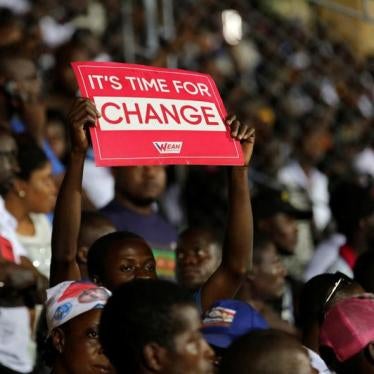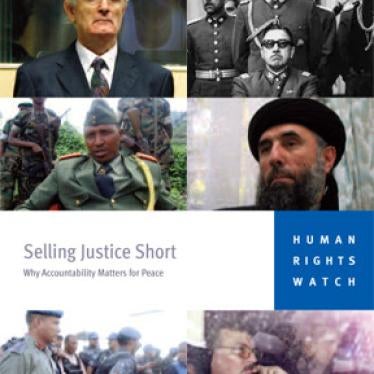The 14-year armed conflict in Liberia was characterized by serious crimes in violation of international law. Since the end of the conflict in 2003, Liberia has made tangible progress in addressing endemic corruption by creating the legislative framework for respect for human rights and facilitating economic growth. However, striking deficiencies within Liberia's rule of law sectors remain, which have resulted in persistent human rights violations and have undermined President Ellen Johnson-Sirleaf's post-war recovery, anti-corruption, and development agendas. The Truth and Reconciliation Commission undertook significant efforts from 2006 to 2009 to provide an account of the crimes committed during Liberia's wars. However there is little political will to ensure that the perpetrators of war crimes and crimes against humanity are held to account for their alleged crimes in Liberia, or to implement many of the Truth and Reconciliation Commission’s reports' recommendations.
(Back to the Charles Taylor feature)
Key Documents:
Reports:
Other Documents:
Nobel Prize Shows Role of Women in Democracy, Peace
Liberia: President Should Act on Rights Commission
Universal Periodic Review: Liberia
Liberia: Warlord’s Arrest in US Shows Need for Justice
Liberia: Support War Crimes Prosecutions
No Safe Haven: Accountability for Human Rights Violators, Part II
A Trial Sends a Message Around the World
US: First Verdict for Overseas Torture
Q & A: Charles 'Chuckie' Taylor, Jr.’s Trial in the United States for Torture Committed in Liberia
Letter to UN Secretary-General Ban Ki-moon on Justice for Past Crimes in Liberia and Côte d'Ivoire







